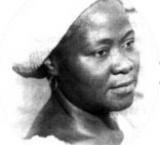
Aoua Keita Comic Strip
Aoua Keita (1912-1980) was a Malian midwife and anti-colonial activist.
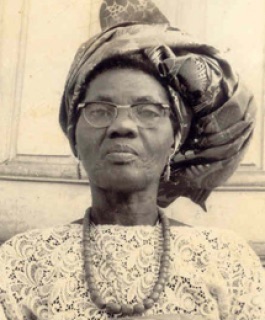
Funmilayo Ransome-Kuti Comic Strip
Funmilayo Ransome-Kuti (1900–1978) was a leading activist during Nigerian women’s anti-colonial struggles. She founded the Abeokuta Women’s Union, one of the most impressive women’s organizations of the twentieth century (with a membership estimated to have reached up to 20,000 women), which fought to protect and further the rights of women.
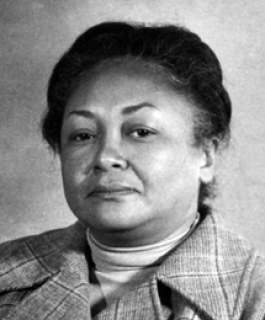
Gisèle Rabesahala Comic Strip
As a celebrated Malagasy woman politician of the twentieth century, Gisèle Rabesahala (1929-2011) devoted her life to her country’s independence, human rights and the freedom of peoples. The first Malagasy woman to be appointed minister (1977), she is regarded as a pioneer in Malagasy politics.
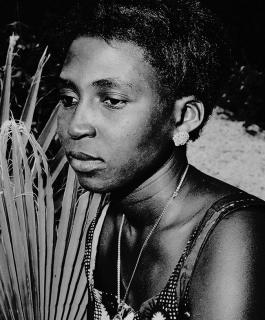
Mariama Ba Comic Strip
Mariama Ba was one of the pioneers of Senegalese literature.
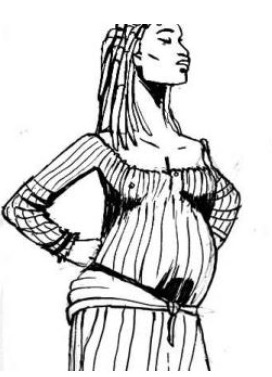
The Mulatto Solitude Comic Strip
Sojourner Truth (c.1797-1883) was a leading activist, speaker and teacher at the forefront of the African-American struggle for civil rights. Resolutely non-sectarian, she acted as a bridge between issues such as women’s rights, abolition, and religious freedom.
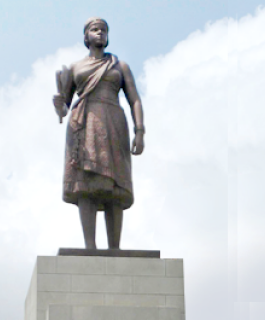
The Njinga Mbandi Comic Strip
Njinga Mbandi (1581–1663), Queen of Ndongo and Matamba, defined much of the history of seventeenth-century Angola. A deft diplomat, skilful negotiator and formidable tactician, Njinga resisted Portugal’s colonial designs tenaciously until her death in 1663.
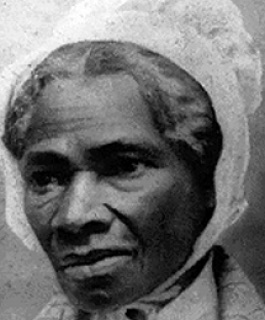
Sojourner Truth Comic Strip
Sojourner Truth (c.1797-1883) was a leading activist, speaker and teacher at the forefront of the African-American struggle for civil rights. Resolutely non-sectarian, she acted as a bridge between issues such as women’s rights, abolition, and religious freedom.
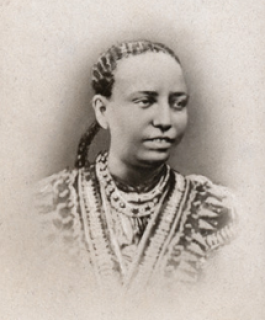
Taytu Betul Comic Strip
Taytu Betul (c.1851–1918) was a formidable queen and empress of Ethiopia. An astute diplomat, she proved to be a key figure in thwarting Italian imperialist designs on Ethiopia. Later, she and her husband Emperor Menelik II, led a huge army to battle at Adwa, where they won one of the most important victories of any African army against European colonialist aggression.
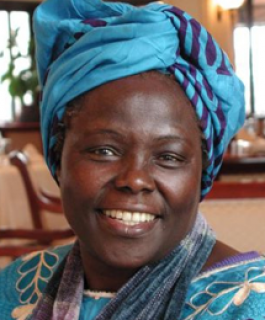
Wangari Maathi Comic Strip
Wangari Maathai (1940–2011) was a Kenyan scholar and environmental activist. She founded the pioneering Green Belt Movement in 1977, which encourages people, particularly women, to plant trees to combat environmental degradation.
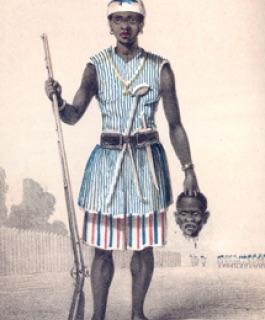
The Women Solddiers of Dahomey Comic Strip
Elite troops of women soldiers contributed to the military power of the Kingdom of Dahomey in the eighteenth and nineteenth centuries. The troops were dissolved following the fall of Behanzin (Gbêhanzin), during French colonial expansion at the end of the nineteenth century.
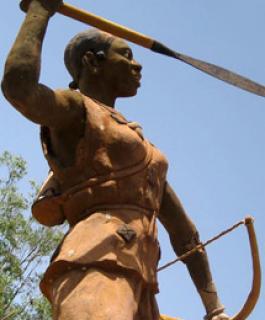
Yennega Comic Strip
Yennega, an emblematic figure in Burkina Faso, was the mother of Ouedraogo, the founder of the dynasties of the Moose chieftains. She is thought to have lived between the fourteenth and fifteenth centuries. A legendary figure in West Africa, Yennega is the epitome of the female warrior, a free and independently minded woman.
